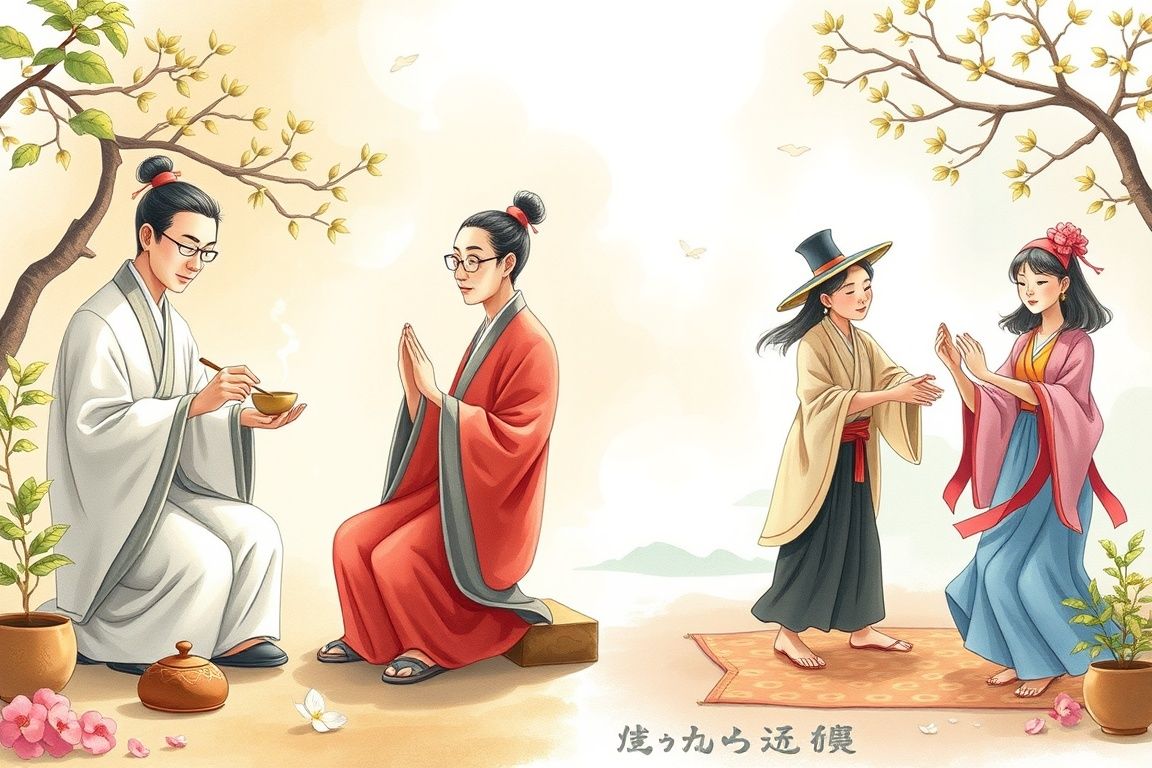Comparing Eastern and Western Cultural Traditions

This course highlights the differences and similarities between Eastern and Western cultural practices. Participants will explore how philosophy, religion, art, and social norms vary across these regions, as well as how they influence global interactions.
Why It’s Worth It
Gain a comprehensive understanding of Eastern and Western cultures, preparing you for global interactions in personal and professional life.
Enhance your critical thinking and analytical skills by comparing diverse philosophical and cultural traditions.
Cultivate cultural sensitivity and appreciation, useful in multicultural environments and enhancing interpersonal relationships.
Your Learning Roadmap
Foundations of Eastern and Western Cultures
This module sets the stage by providing a historical overview and key definitions that distinguish Eastern and Western cultural traditions. Participants will gain a clear understanding of the basic frameworks used to compare these diverse practices, drawing on insights from well-known texts such as The Geography of Thought. Historical Overview Defining Cultural Traditions Comparative Frameworks
Philosophical and Religious Perspectives
This module examines how philosophy and religion have differently shaped Eastern and Western societies. With lessons on key Eastern philosophies like Confucianism and Buddhism, contrasted with Western traditions such as Greek rationalism and Judeo-Christian thought, participants will come to appreciate the profound influences these belief systems have on cultural practices. References from The Tao of Pooh and Orientalism offer additional context to these perspectives. Eastern Philosophical Traditions Western Philosophical Traditions Religious Beliefs and Practices Comparative Philosophical Methods
Artistic and Aesthetic Expressions
This module investigates the rich tapestry of artistic expression that characterizes Eastern and Western cultures. Lessons delve into visual arts, literature, music, and performance, showcasing how aesthetic principles are deeply embedded in cultural narratives. Participants will explore key artworks and cultural movements, drawing parallels and contrasts that shed light on diverse value systems. Visual Arts and Calligraphy Literature and Storytelling Music and Performance Arts
Social Norms and Values
This module focuses on the lived experiences within Eastern and Western cultures by exploring family, community, social etiquette, and communication styles. It discusses how social norms create a framework for behavior and how these norms both reflect and reinforce cultural identities. Participants will explore diverse societal models, learning to appreciate the role of tradition and change within modern cultural contexts. Family Structures and Hierarchies Community versus Individualism Etiquette and Communication
Global Interactions and Contemporary Trends
The final module connects traditional cultural practices to modern global interactions. It examines how globalization, technological change, and cross-cultural communication are reshaping cultural boundaries. Participants will investigate current trends and future directions, evaluating how past traditions influence contemporary societal challenges and opportunities for cultural convergence. Modern Cultural Exchanges Globalization and its Impact Future Trends and Cultural Convergence
What Users Are Saying
All You Need to Know
Join the Cultural Journey!
Real-time questions and feedback.
Flexible learning at your own pace.
Interactive modules with engaging content.
In-depth exploration of cultural nuances.
Analytical frameworks for cultural comparison.
Focus on contemporary cultural trends.
